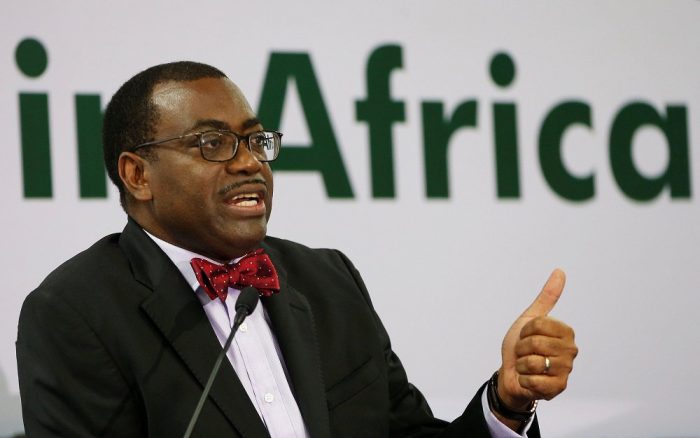Akinwumi Adesina, president of the African Development Bank (AfDB), says the International Monetary Fund (IMF) $650 billion special drawing rights (SDRs) will boost the reserves of developing countries.
Adesina said this on Thursday during a closed-door session between Angela Merkel, German chancellor, and heads of international development institutions to discuss the uneven global economic recovery, access to vaccines, and strategies to drive recovery from the COVID-19 crisis.
He said the SDRs, including $27 billion for African countries, were invaluable in facing down economic headwinds.
Nigeria will receive about $3.4 billion as its share, according to the IMF quota.
SDR is an international reserve asset created by the United Nations specialized agency to supplement its member countries’ official reserves.
The AfDB, in a statement, quoted Adesina as saying, “The recent IMF release of $650 billion in SDRs, with $27 billion to Africa, will go a long way in helping to boost reserves for developing countries.
“If the developed countries reallocate $100 billion of SDRs to Africa, as agreed at the Paris leaders meeting and by the G7, that will further support faster economic recovery in Africa.”
The statement said that heads of international development institutions present at the closed-door session included the heads of AfDB, IMF, the World Trade Organization, the World Bank, the International Labour Organization, among others.
Speaking at the session, David Malpass, World Bank’s president, said progress had been made under the African Vaccine Acquisition Trust (AVAT) initiative of the Africa Centres for Disease Control and Prevention, but that advanced economies still need to make doses available to the rest of the world.
Highlighting the IMF’s projection of 6 percent global growth in 2021, Kristalina Georgieva, IMF’s managing director said: “The composition of the 6 percent is changing, with advanced economies broadly accelerating growth, whereas most emerging markets and developing economies are falling further behind. This is a dangerous divergence.”
According to her, vaccines remain the number one priority.
According to the statement, German Chancellor, Angela Merkel, called on the IMF, G7 and World Bank to continue to take measures to support the COVID-19 recovery of lower and middle-income countries.
She also urged them to create strategies to drive economic recovery from the Covid-19 crisis.
“We have noted that the recovery after the pandemic is a two-speed recovery, which is cause for concern,” she said.

 Forex3 weeks ago
Forex3 weeks ago


 Naira2 weeks ago
Naira2 weeks ago
 Billionaire Watch2 weeks ago
Billionaire Watch2 weeks ago




 Naira2 weeks ago
Naira2 weeks ago




 Naira2 weeks ago
Naira2 weeks ago




 Naira1 week ago
Naira1 week ago




 Naira4 weeks ago
Naira4 weeks ago




 Naira3 weeks ago
Naira3 weeks ago
















